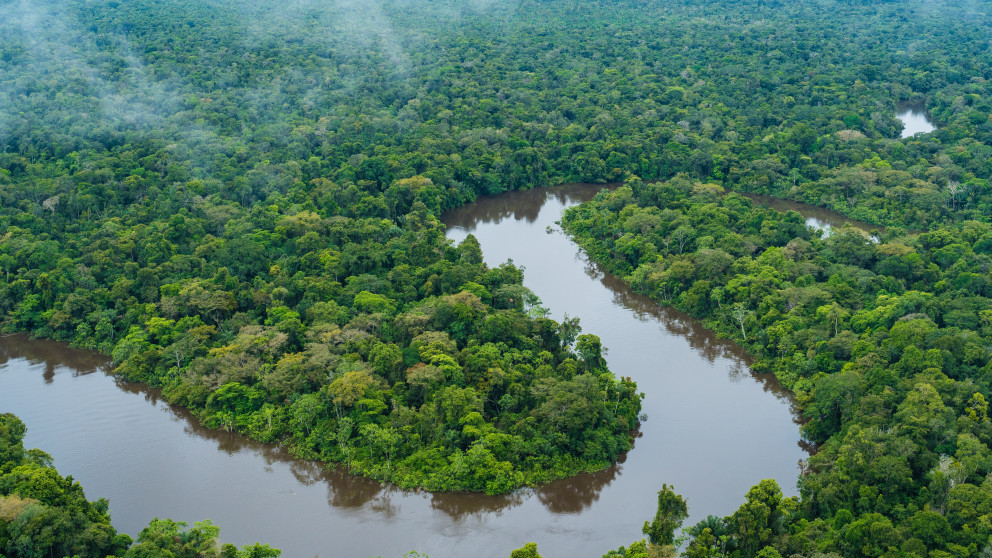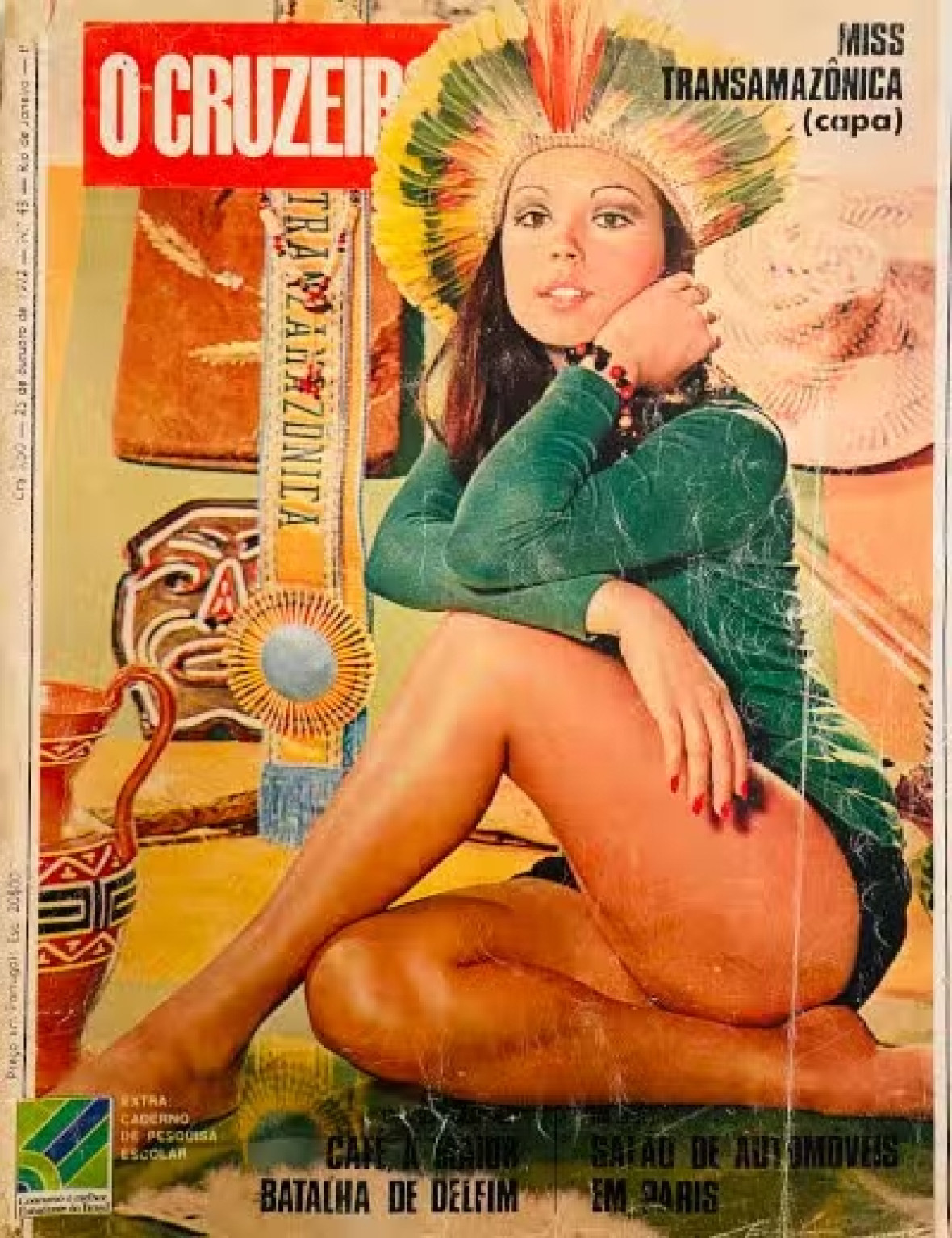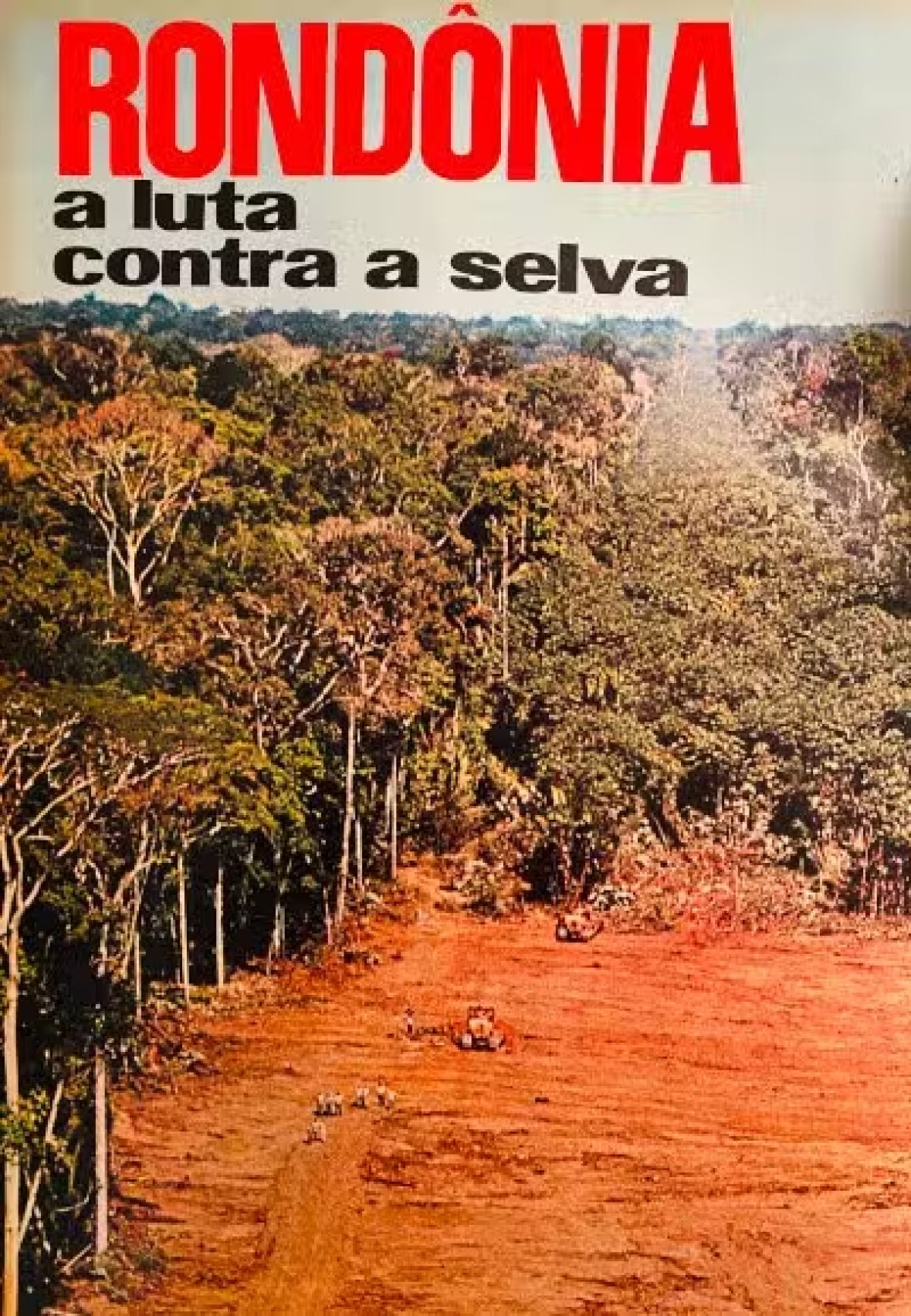Amazon-Masculinity
06.05.2025

One striking feature of today’s far-right politics is its fixation on masculinity – and Brazil’s Bolsonaro is no exception. On September 7, 2022, during the celebration of the 200th anniversary of Brazil’s independence, then-President Jair Messias Bolsonaro (2019–2022), stood alongside his wife and led a chant that was echoed by thousands of his supporters: “imbrochável, imbrochável, imbrochável...”. The term “imbrochável”, which resists translation, has been rendered by The New York Times as “never limp.” In other words, Bolsonaro and his supporters cast him as virile, testosterone-fuelled leader who never fails in bed.
“Never limp” is one of the three words engraved on the “Bolsonaro Club” medal. At its centre, the medal depicts the former president with a stern expression, his finger pointed assertively forward. The other two words completing the triad are “immortal” (imorrível) and “not to be screwed with” (incomível). As a gesture of friendship and support, Bolsonaro has presented this medal to political allies — among them Argentina’s Javier Milei, Hungary’s Viktor Orbán, and Brazil’s Pablo Marçal — inviting them to join the so-called “Bolsonaro Club.” Roberto Katsuda, a businessman of mining machinery in the Amazon, was also awarded the medal by Bolsonaro.

On July 6, 2019, during an informal exchange with journalists and supporters outside the official presidential residence, Bolsonaro made a remark that attracted widespread media attention. When questioned about the international backlash over deforestation in the Amazon, he replied: “Brazil is a virgin that every pervert from abroad wants. [...] The First World wants to take over the administration of this area. Do you want to lose the Amazon?”. This statement invites us to reflect on how the notion of masculinity can also be projected onto the Amazon – framing it as a territory that must be protected from the lust of foreign perverts, and ultimately possessed and enjoyed by Brazilians.
I propose the term “Amazon-masculinity” to guide this reflection – a concept inspired by “petro-masculinity,” coined by professor and RIFS fellow Cara Daggett.
A Brief History of Amazonian Colonisation in the 20th Century
Nature is often represented in two opposing ways: as benevolent — the Mother Earth who nurtures her creatures and sustains all life; or as a wild, treacherous, and tempestuous force. For centuries, the Amazon has been portrayed as the latter, a “green hell” that resists exploration and colonisation. The very name “Amazon River,” coined in 1541 by the Spanish conquistador Francisco de Orellana, explicitly conveys this idea: the Amazons are warrior women from Greek mythology, exotic, hostile to men, and ready to fight. A plausible explanation for why the name “Amazon” came to designate the entire region, and why it endured through time, is precisely because it evokes this notion of “wild nature”.
With the rise of capitalism and the optimism of techno-scientific rationality in modernity, the mission to "dominate" the “wild” nature and render it “benevolent” became a civilizational goal — a telos leading humanity toward progress and development. This transformation was to be led by modern man, perceived as rational (unlike the traditionally emotive portrayal of women) and a tool-making animal. This marks the triumph of homo faber, where instrumental reason enables humanity to overcome natural barriers previously insurmountable and amplify human power previously unimaginable. Thus begins the crystallization of a new kind of superior authority of man over nature — and that is closely tied to another matrix of authority: the Global North over the Global South, and of white people over indigenous and black people.
Understanding the history of Amazonian colonization in the 20th century can help us to shed light on how the relationship between man and nature (and the use of gender here is no coincidence) is imbued with attributes of possessive and "superior" masculinity.
In the 1940s, under President and dictator Getúlio Vargas (1937–1945), the "March to the West" policy emphasized the integration of the Amazon into the national economy. In his 1940 "Amazon River Speech," Vargas stated: "The highest task of civilized man: to conquer and dominate the valleys of the great equatorial torrents, transforming their blind force and extraordinary fertility into disciplined energy. The Amazon, under the fruitful impulse of our will and our labour, will finally cease to be merely a chapter in the history of the Earth and, […], will become a chapter in the history of civilization". In other words, the Amazon is portrayed as a blind and fertile force, frozen in time, as if awaiting the arrival of civilized man, who, through will and labour, will conquer, discipline and usher it into the realm of civilization and progress.
In 1970, under the military dictatorship (1964–1985) and as part of the “National Integration Policy,” construction began on the Transamazon Highway (BR – 230), which stretches over 4,400 kilometres from the Atlantic Coast into the heart of the forest. In the words of president and dictator Emilio Garrastazu Médici (1969 – 1974), the objective of the highway was to “facilitate the effort of occupation and development of the Amazon — an imperative of progress and Brazil's commitment to its own History." A commemorative plaque unveiled in 1974 declared: "[The Transamazon Highway is…] a demonstration of the Brazilian people's will to conquer this immense green area and build a great and vigorous nation."
These ideas of “conquest” and the forging of a “vigorous nation” also figure prominently in magazines from that era, as evidenced by Ricardo Cardim’s archive. The cover of Revista Manchete from 1972 reads: “Here we conquered the forest,” and Revista Veja from 1982 features the headline: “The fight against the jungle.” The cover of O Cruzeiro magazine, also from 1972, displays an image of “Miss Transamazônica” as a way to attract young workers to colonize the Amazon by showcasing the presence of beautiful women in the region — which makes us reflect on how the objectification of women goes hand in hand with the objectification of nature.
Toward a New Imaginary
The term Amazon-masculinity helps us reflect on the relationship between man and nature — and how that relationship is shaped by “positive” notions of masculinity: strength, domination, aggressiveness, intelligence, authority, credibility, civility, virility and vigour. Recounting the history of Amazonian colonization in the 20th century helps us to shed light on the destructive dynamic between man and nature, and on the domination exerted by a possessive form of masculinity. It is also useful to critique how Jair Bolsonaro, by denouncing international greed over the Amazonian territory — as a “virgin that every pervert from abroad wants” — revives and reaffirms this Amazon-masculinity in the present.
Brazil is a country where the history of violence against women, the forest, and democracy is one of deep continuities. Creating a new history requires forging new relationships and new imaginaries. In this sense, it is important to critique, dispute, and overcome the imaginary of Amazon-masculinity.



